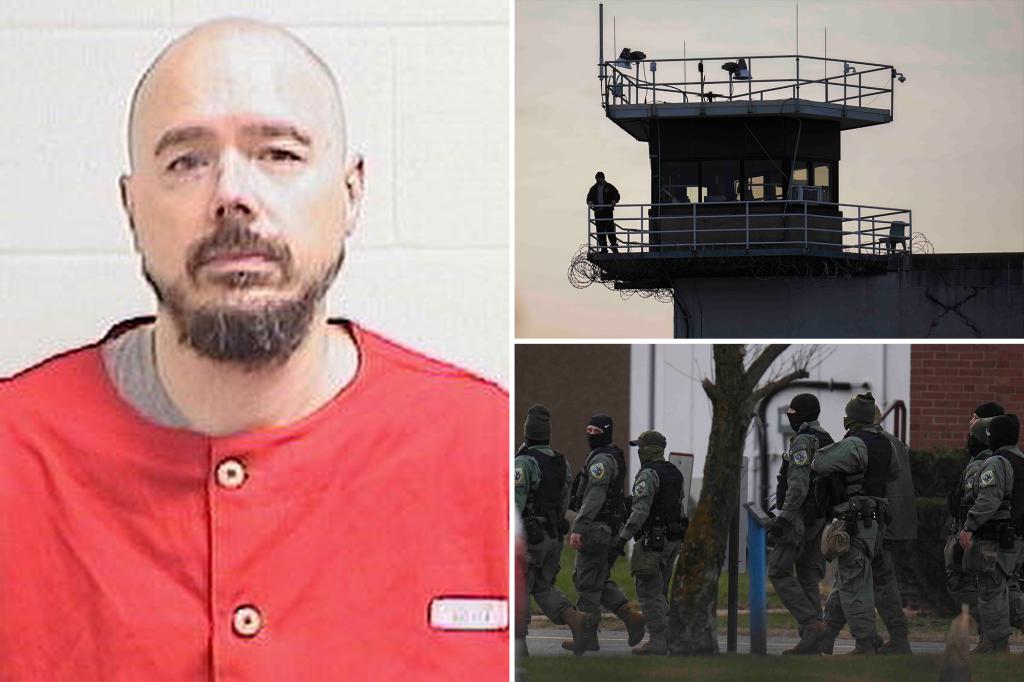Joseph Corcoran, a 49-year-old Indiana man, was executed on Wednesday, July 26, 2023, marking the state’s first execution in 15 years. Convicted in 1997 for the murders of four individuals, including his brother and his sister’s fiancé, Corcoran’s execution brought an end to a lengthy legal battle that spanned over two decades. The execution, carried out at the Indiana State Prison in Michigan City, was shrouded in secrecy, with limited information released by the state regarding the specific method used. While pentobarbital was scheduled, the official statement remained ambiguous. This execution marked the 24th in the US for 2023 and reignited debate surrounding capital punishment, mental illness, and transparency in execution procedures.
The backdrop to Corcoran’s crimes was a period of personal upheaval. Court records indicate that the impending marriage of his sister and her fiancé, who lived with Corcoran and his brother, created stress and precipitated the horrific events. He fatally shot his brother, James Corcoran, his sister’s fiancé, Robert Scott Turner, and two other men, Timothy G. Bricker and Douglas A. Stillwell. Adding to the complexity of the case was Corcoran’s alleged involvement in the deaths of his parents in 1992. Despite being charged, he was acquitted in those killings. However, reports suggest he boasted about their murders while incarcerated for the 1997 quadruple homicide.
The years following Corcoran’s conviction were marked by numerous appeals and legal challenges. His defense team consistently argued that he suffered from severe mental illness, impacting his ability to comprehend his actions and participate in his defense. These claims formed the basis for repeated appeals to both state and federal courts, including multiple petitions to the Indiana Supreme Court and the US Supreme Court. Despite these efforts, each appeal was ultimately denied. His legal team argued that a hearing to determine his competency to be executed was never conducted, raising concerns about due process. The US District Court of Northern Indiana and the US Court of Appeals for the 7th Circuit both declined to intervene, leaving the Supreme Court as his final recourse.
The Indiana Supreme Court denied a request to halt the execution earlier this month, prompting a last-ditch effort by Corcoran’s attorneys to petition the US Supreme Court for a stay. They argued that Corcoran’s mental health hadn’t been properly assessed and that his execution would be unconstitutional. However, the Supreme Court denied their request late Tuesday, effectively exhausting all legal avenues for preventing the execution. This left Governor Eric Holcomb as the final authority with the power to commute the sentence. However, Holcomb declined to intervene, clearing the path for the execution to proceed as scheduled.
The decision to proceed with the execution drew protests from various groups, including religious organizations and death penalty abolitionists. Vigils and demonstrations were held outside the prison, with participants expressing their opposition to capital punishment and raising questions about the morality and efficacy of state-sanctioned executions. The lack of transparency regarding the execution procedure also fueled criticism, particularly as Indiana remains one of only two states that bar media witnesses from executions. The limited information released by the state left many unanswered questions about the drugs used and the overall process.
Corcoran spent his final hours with family, including his wife, Tahina Corcoran, who maintained his innocence and emphasized his mental illness. She expressed her belief that Corcoran didn’t fully comprehend the impending execution and reiterated her pleas for clemency. Meanwhile, Governor Holcomb defended the decision to proceed with the execution, highlighting the numerous legal reviews the case had undergone. He emphasized that Corcoran’s sentence had never been overturned and was carried out as ordered by the courts. Following the execution, activists against the death penalty sang “Amazing Grace” outside the prison. While Corcoran’s execution brought a sense of closure to the legal proceedings, it also rekindled the complex and often contentious debate around capital punishment in the United States.

